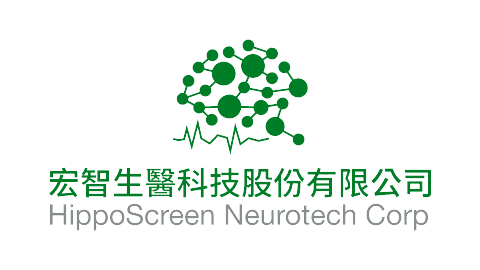Challenge: Delivering Critical Mental Health Diagnoses On Time
Globally, an estimated 5% of adults suffer from depression 1, a prevalent and serious illness that, if left untreated, can become increasingly debilitating even to the point of suicide. Unlike most other psychiatric diagnoses, there is no one-size-fits-all diagnostic procedure or equipment for depression itself, and while there are some cases that can be clinically diagnosed, most assessments are dependent on subjective self-descriptions by the patients themselves. More problematic still, due to the stigma surrounding depression, it may take months or even years for sufferers to figure out that their somatic symptoms are caused by this major depressive disorder.
HippoScreen focused on solving this problem.
The Taiwan-based startup developed the Stress EEG Assessment (SEA) System, a solution that helps doctors more accurately diagnose mental health conditions. Comprised of an EEG amplifier for data collection and signal processing, a GUI for test process control, and an AI algorithm for data analysis, SEA analyzes 90-second brainwave signals and provides an objective and quantifiable evaluation index that numerically represents the probability that an individual is suffering from depression.

To deliver optimized results, SEA is designed to dive deep into many algorithms used in data preprocessing, feature extraction, feature selections, and classifiers—these include HippoScreen's proprietary algorithms, machine learning algorithms implemented by scikit-learn*, and deep learning models implemented by PyTorch*.
However, as with other medically oriented AI products, developing the SEA System has included challenges. Notably:
- Generalizing the AI model to make it applicable in real clinical conditions
- Designing a well-controlled test process to ensure the quality of the data
- Ensuring the AI model could accommodate variation in the data, which is key to success
Consequently, it may take days to search for the optimized parameters and ideal features set in one of these algorithm combinations. Improving the efficiency of these algorithms is critical, and it may very well be the difference maker in whether these optimized results can be delivered on time.
Solution: Using Intel® Tools to Accelerate Diagnostic Performance & Delivery
"We at HippoScreen have been able to take advantage of the software optimizations in Intel® Extension for Scikit-learn and Intel® Optimization for PyTorch to accelerate the build times for the AI models in our customized EEG Brain Waves analysis system by 2.4x."
To improve algorithm efficiency and diagnostic accuracy while reducing the delivery times of critical diagnostic results to medical personnel, HippoScreen leveraged the optimizations of Intel analysis tools and AI frameworks. Specifically:
Intel® VTune™ Profiler
This analysis tool helped HippoScreen take a deep dive into understanding the total logical CPU count and software thread count in Hipposcreen's vs. Intel's python* environment with different OpenMP libraries. In both cases, VTune Profiler recommended decreasing the thread count, as both cases involved thread oversubscription. We were able to find the sweet spot for maximum performance and minimum CPU utilization with a thread count of 5.
Results:
- HippoScreen was able to find the sweet spot for maximum performance and minimum CPU utilization with a thread count of 5 and;
- Performance improved by 2x, allowing the company to quickly identify and resolve threading oversubscription issues.2

Intel® Optimization for PyTorch* + Intel® Extension for Scikit-learn*
Alongside HippoScreen’s proprietary algorithms, the deep learning models of Intel-optimized PyTorch such as SCCNet, EEGNet, and Shallow ConvNet, are mixed with Intel's scikit-learn-based traditional machine-learning algorithms like Kmeans, Support Vector Classification, and Support Vector Regression to analyze EEG Data features ultimately culminating in a unique decision factor.
Results: HippoScreen achieved 2.4x performance improvements.3

Explore More
Download the tools
- Get the full complement of Intel oneAPI and oneAPI-powered tools in the Intel oneAPI Base Toolkit and Intel AI Analytics Toolkit.
- Or download standalone:
About HippoScreen
HippoScreen Neurotech Corp. (HNC) is a Taiwan-based startup company backed by Compal Electronics. With electroencephalogram (EEG) signal processing and artificial intelligence technology as the pillars, HippoScreen is developing EEG-assisted medical diagnosis tools. Their proprietary EEG amplifier cleared FDA 510(k) at the end of 2020, completed the TFDA review, and received official approval for use as a medical device in March 2021, becoming the first medical-grade EEG amplifier developed and manufactured in Taiwan. HippoScreen has collaborated with three medical centers in Taiwan to build the largest cross-center EEG-based database on clinical depression in the world and has published the research results.
